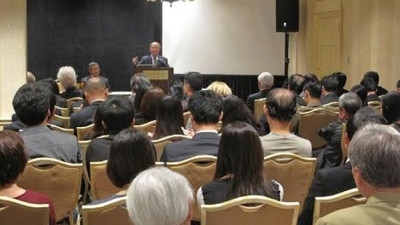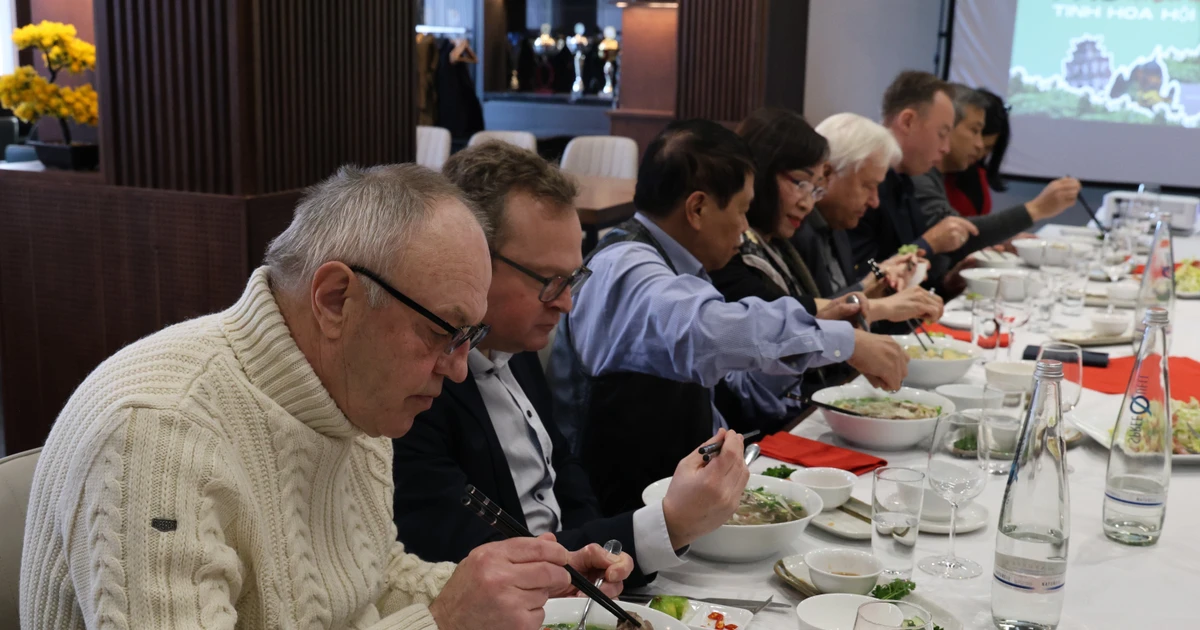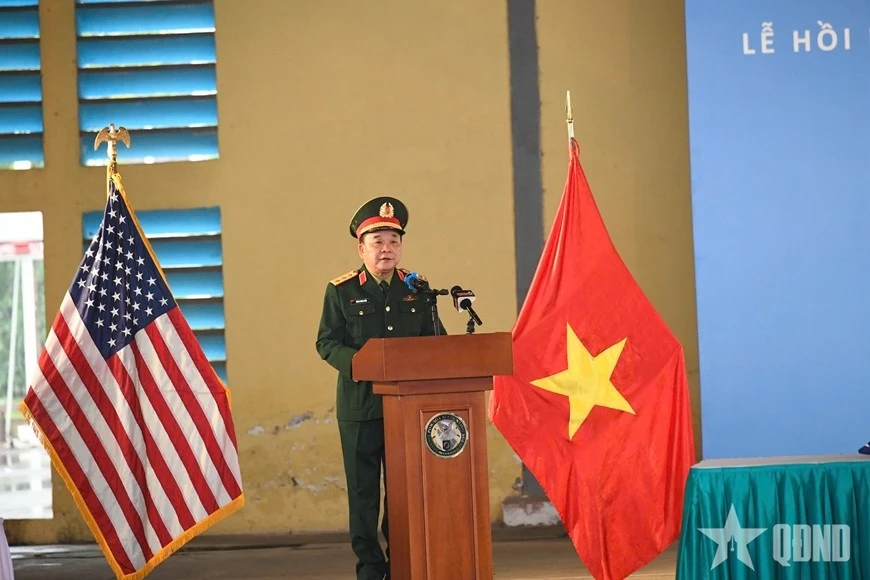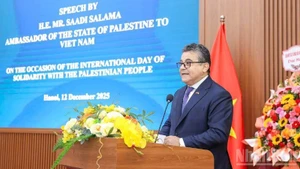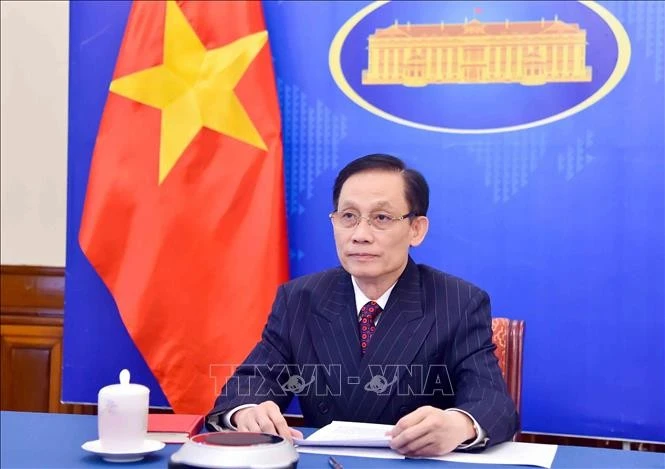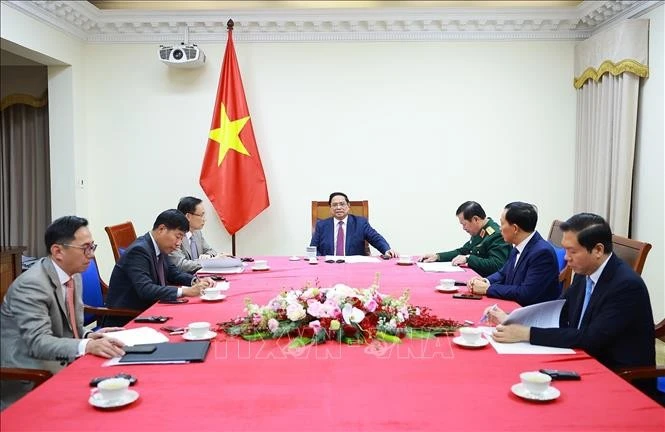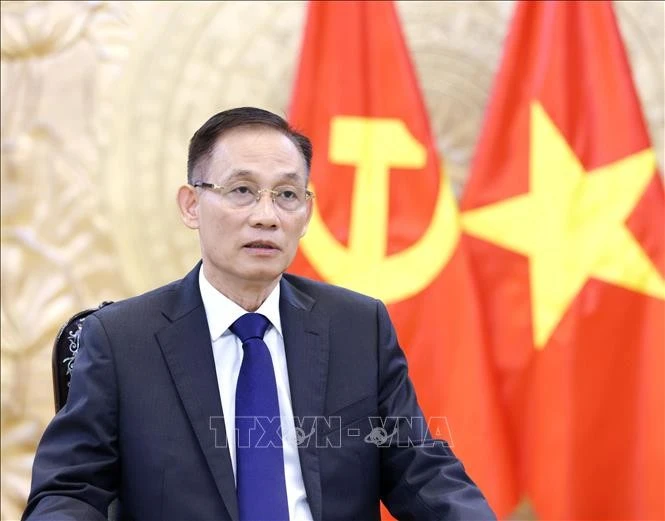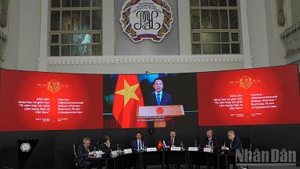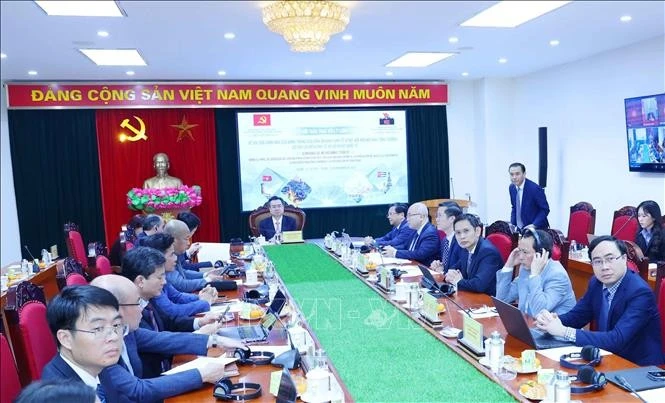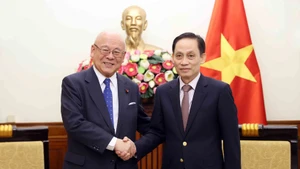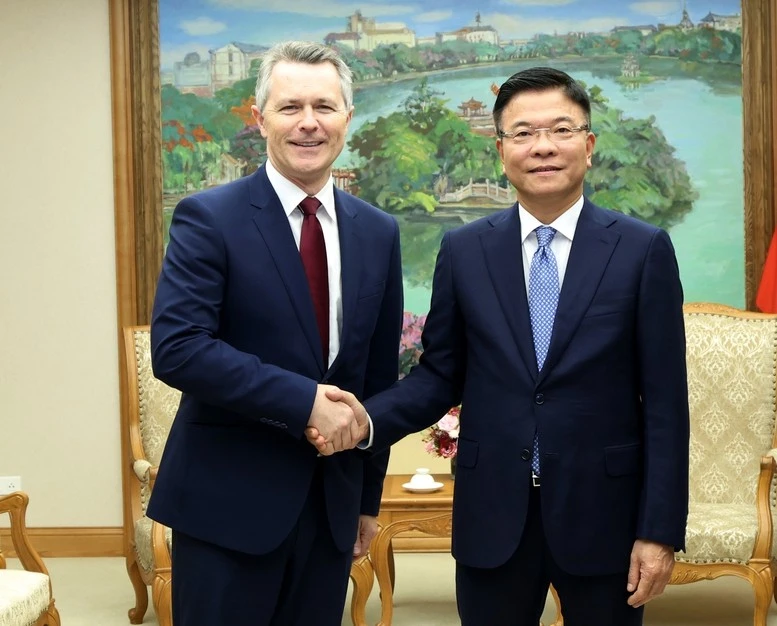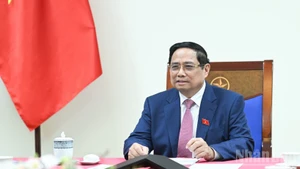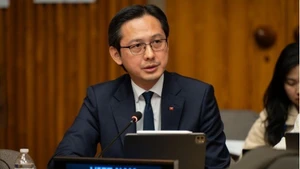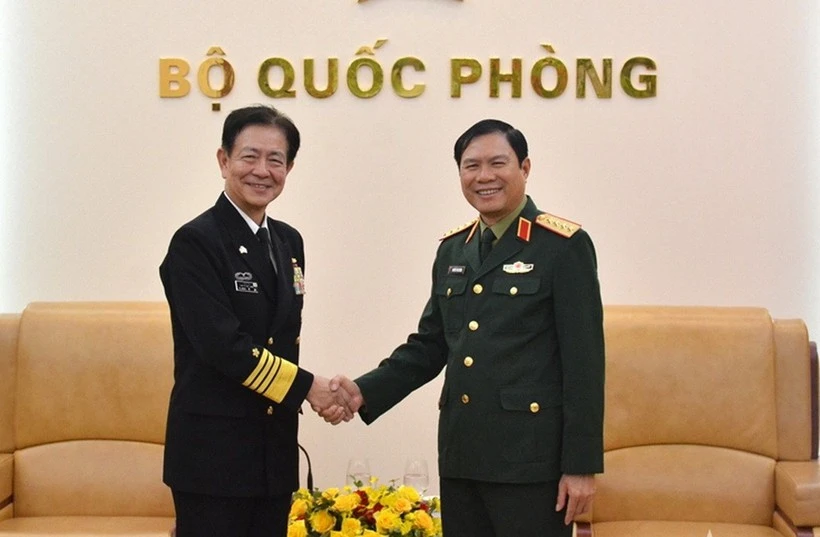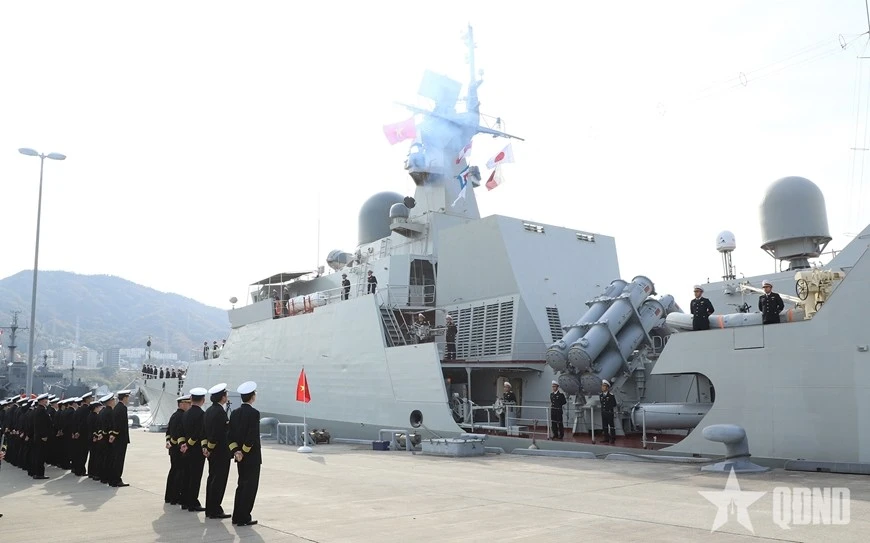>> Special meeting with the first US artist to paint Uncle Ho’s portrait
The story of a special young Vietnamese man
The Omni Parker Hotel is located on a busy street of Boston’s central area.
An introduction of the hotel is framed and hung in the basement’s corridor, including many photos and articles about the daily life of Boston people in the past, including that Ho Chi Minh worked as a baker at the hotel from 1911 to 1913 and used the marble table top pictured in the photo which is still used in the hotel’s bakery today. A black and white photo of Van Ba (Ho Chi Minh’s name at the time) is above the marble table and next to it is a letter from Vietnamese Ambassador to the US Nguyen Tam Chien dated August 2, 2005 expressing his gratitude to the hotel’s General Manager Richard Mason and staff for their thoughtful and hospitable reception to Prime Minister Phan Van Khai and his entourage during their historic visit to the US ten years ago.
The uniqueness and fame of the hotel, which was built in 1855 based on ancient British castle architecture, is also reflected in the content of the information plaque attached to the wall of the entrance on a busy street, documenting the presence of President Ho Chi Minh, J.F.Kennedy and Charles Dickens among other well-known identities that previously stayed at the hotel.
It lists famous figures who once upon a time organised gatherings, important cultural events and activities marking the history of the US and Massachusetts. An old poem written by Oliver Wendell Holms praising the hotel and a copy of the invitation dated March 19, 1859 sent to Abraham Lincoln to attend and make a speech at President Thomas Jefferson’s birthday at Parker House are also featured.
The information plaque at the entrance
Baker Van Ba in the hearts of friends and admirers
Welcoming the Vietnamese top legislator and his entourage, Tran Thi Tuoi from the Mekong Delta province of Tra Vinh settled in the US 17 years ago and has worked for the Omni Parker Hotel ever since. She said that she and two other Vietnamese colleagues from Can Tho and Ho Chi Minh City were genuinely excited and moved by the presence of Chairman Nguyen Sinh Hung. Welcoming the delegation with a radiant smile, she invited the guests to sample the hotel’s traditional creamy cake, noting that it is the same cake Uncle Ho used to make, following the same recipe and ingredients. The old baking oven is still there, although an advanced cake production line has since replaced it and the cakes’ design has become more modern in design and taste to attract customers, Tuoi added.
Tran Xuan Tuoi next to the hotel’s baking oven.
A 100-year-old table, which was used by Uncle Ho and his colleagues from the early mornings, currently located in the basement, is still carefully preserved by the hotel owners. Generations of the hotels staff are proud of the Vietnamese leader’s presence at the hotel, making it unique among other big hotels in Boston and the US, Tuoi said.
She said that the table was a souvenir of Uncle Ho’s presence, a feature drawing the attention of visitors to Boston from different states and historians, experts, interntional visitors and the press. Tươi felt proud to work at the hotel, often meeting with and telling Vietnamese people, international visitors and reporters stories of Uncle Ho and the famous hotel.
Tuoi added that the hotel became famous due to the presence of Uncle Ho and other US celebrities over the hotel’s 150-year history.
Uncle Ho and Boston
After visiting the bakery, NA Chairman Hung and his entourage met with representatives from the overseas Vietnamese community in the US as well as a number of US friends and dignitaries. Professor Kevin Bowen spent nearly 30 minutes introducing his meticulous research on the history of Boston when Uncle Ho was living in the city.
Professor Kevin Bowen speaking about the history of Boston during Uncle Ho’s stay.
Through the professor’s presentation and accounts told by the hotel staff and US friends in New York and Boston, a further understanding of the brilliant leader of Vietnam – the young man by the name of Nguyen Tat Thanh at the time – greatly respected by international friends, was reached.
During the meetings between Chairman Hung and Massachusetts Senate President Stanley Rosenberg, President of the Massachusetts House of Representatives Robert Delco, Professor Brian Lemay, Dr. Nathaniel Sheiley at Boston's Old City Hall, US friends reffered to historical materials and studies confirming that during his stay in the US, Uncle Ho had studied American history meticulously whilst becoming integrated into the daily life of the local people. He witnessed historical turning points, learned of influential personalities, American culture and observed the customs and practices of different nationalities and communities in the US, particularly the busy life of Boston residents.
The US’ history honours Boston as the first city where the revolution for the US’ independence began. US historians assume that the Vietnamese patriotic figure appreciated the fight for independence, freedom and unification of US people. He took different jobs, joined numerous social activities and directly witnessed several important historical events in the city. He chose to work for the hotel due to it’s location - near the Port of Boston where workers from all around the world entered the country - to get a better understanding and practice in cultural exchanges.
The sincere and open meetings created a ‘hyphen’ between the past and the present of the Vietnamese nation through stories about Uncle Ho. Recounting the history and relations between Vietnam and the US both in the past and at present, drawing on many interesting similarities and special ‘fortunes’, Chairman Hung reiterated that at the outbreak of World War II, President Ho Chi Minh and the revolutionary movement founded by him sided with the allies against facism while pro-actively co-operating with a group of US officers to discuss measures against the Japanese fascists.
Fortunes and similarities
Reviewing the historic revolutionary cause of President Ho Chi Minh, leaders from the Vietnamese National Assembly, as well as officials from Boston and Massachusetts mentioned specific details reflecting the President’s great vision attained during his stay in Boston.
That was in the early days of the newly established State of the Democratic Republic of Vietnam following the success of the August Revolution. In the Declaration of Indepedence announced at Ba Dinh Square in Hanoi on September 2, 1945, President Ho Chi Minh quoted several lines from the American Declaration of Independence relating to the inalienable rights of life, liberty and the pursuit of happiness. At that time, Uncle Ho had written a number of letters to US leaders proposing the Vietnamese Government and people develop relations with the US Government and people.
